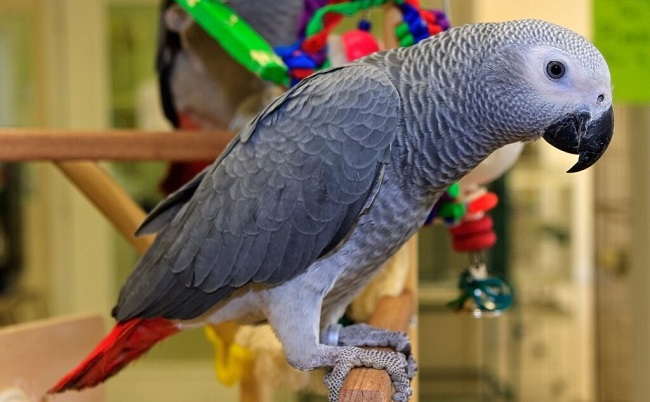African Grey Parrots, renowned for their intelligence and speech mimicry, make fascinating and entertaining pets. However, potential owners should be aware that these magnificent birds come with significant financial responsibilities.
This article offers an in-depth look at the costs involved in owning an African Grey Parrot, providing a realistic picture of this long-term commitment.

Bringing Home a New African Grey Parrot: One-Time Costs
Check out here:
Read Also:
Purchase Price
The initial purchase price of an African Grey Parrot varies widely based on factors like age, temperament, and the breeder’s reputation. As of 2023, you can expect to pay anywhere between $1,000 and $3,500 for a baby or juvenile African Grey Parrot.
Cage
African Greys need large, sturdy cages with plenty of room to climb and spread their wings. A high-quality cage may range from $200 to $700.
Accessories
Initial set-up costs also include essential accessories like perches, toys, food dishes, and a cage cover for night-time. These could add up to approximately $100 to $200.
Total Annual Cost of Owning an African Grey Parrot
Food
African Greys thrive on a varied diet, including high-quality pellets, fresh fruits, and vegetables. Expect to spend around $500 to $600 annually on food.
Vet Check-ups
Regular veterinary check-ups are crucial for an African Grey’s health, and potential emergencies can add to the cost. On average, you could expect to pay around $200 to $400 annually, although this could increase if your bird needs special treatments or medications.
Toys and Supplies
African Greys are intelligent birds that require mental stimulation, so budget for new toys and supplies regularly. Annual costs can range from $100 to $300.
Insurance
Pet insurance for birds can cover unexpected vet costs and can cost from $10 to $20 a month, depending on the coverage level.
Owning an African Grey Parrot On a Budget
While owning an African Grey Parrot can be expensive, there are ways to manage costs effectively:
Buy in Bulk
Buying food and supplies in bulk can lead to significant savings over time.
DIY Toys
African Greys enjoy variety in their toys. Making your own toys from safe, approved materials can keep your parrot entertained while saving money.
Preventive Care
Regular vet check-ups can prevent health issues, saving on potential vet bills in the long run.
Saving Money on African Grey Parrot Care
Consider adopting an African Grey from a rescue center. Adoption fees are often lower than purchasing from a breeder, and you’ll be providing a home for a bird in need.
Additionally, setting a budget and tracking expenses can help you manage costs effectively. Always factor in potential emergency expenses and set aside a small fund for this purpose.
Longevity of African Grey Parrots
A significant factor that potential owners should consider is the lifespan of African Grey Parrots. With a life expectancy of 40 to 60 years (and sometimes even longer), owning an African Grey is a long-term commitment.
This longevity means you’ll need to consider the long-term costs, such as food, vet care, and enrichment, over decades.
Training and Socialization
African Grey Parrots are highly intelligent and sociable birds, which means they require mental stimulation and social interaction. They can learn to mimic human speech, respond to commands, and even learn tricks.
However, effective training and socialization may require resources such as bird training books, videos, or even professional avian behaviorists. The cost for these resources can vary widely but should be considered in the budget.
Safety Preparations
These parrots are also known for their curious nature and strong beaks, which they use to explore their environment. Consequently, you might need to bird-proof your home, similar to baby-proofing, to ensure the safety of both your pet and your belongings.
Costs can include bird-safe cleaning supplies, securing windows and doors, covering electrical cords, and removing toxic houseplants.
African Grey Parrots’ Special Needs
African Grey Parrots can be prone to certain health issues, like feather picking and calcium deficiencies. They can also suffer from psychological issues if they don’t receive enough mental stimulation or social interaction.
These special needs might require specialized vet care, dietary supplements, or anxiety-reducing products, which can add to the annual cost.
Planning for the Future
Due to their long lifespan, potential owners should also consider who will care for their African Grey Parrot if it outlives them. Some owners choose to include their pets in their wills or set up a pet trust, which can have associated legal fees.
Read Also:
Conclusion
Owning an African Grey Parrot is a rewarding but substantial financial commitment. Potential owners must understand the true costs involved, from one-time setup expenses to ongoing care costs.
By being financially prepared, you’ll ensure your African Grey Parrot lives a healthy, happy, and stimulating life.
























